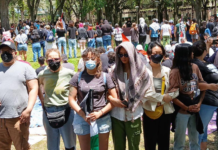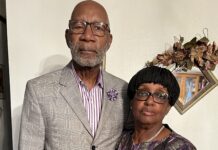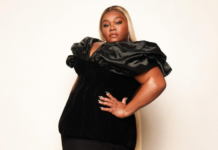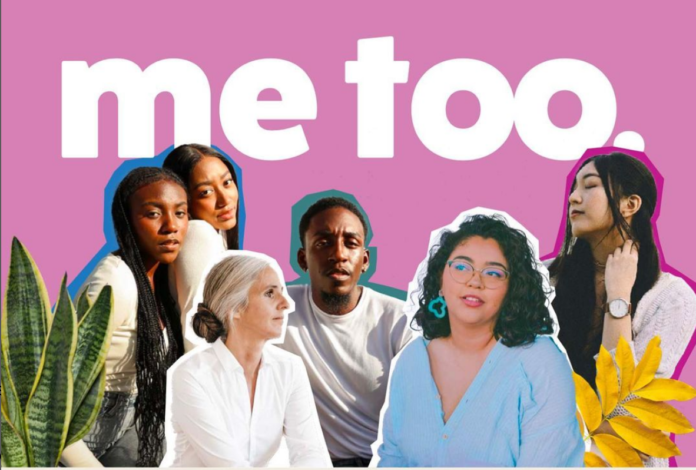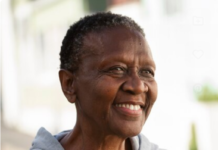By Jennifer Gerson/Originally published by The 19th
Women who accused Harvey Weinstein of sexual misconduct were stunned by the Thursday decision by the New York Court of Appeals to overturn his 2020 felony conviction, again speaking out about the former Hollywood mogul’s behavior. Both survivors and legal experts said the court’s ruling points to issues with how difficult it can be for survivors of sexual violence to be believed and how the criminal justice system works.
The state’s highest court, in a 4-3 decision, said that “the trial court erroneously admitted testimony of uncharged, alleged prior sexual acts against persons other than the complainants of the underlying crimes.” Because of this and other errors made by the trial judge, the appellate court said, Weinstein had not in fact received a fair trial — which necessitated the overturn of the verdict against him.
Weinstein has been serving a 23-year sentence in a federal prison in upstate New York after being found guilty of sexual misconduct. In 2022, he was also sentenced to 16 years in prison by a California judge for raping a woman in a Beverly Hills hotel room. Manhattan District Attorney Alvin L. Bragg, who is in the middle of his trial against former President Donald Trump, must now decide whether he wishes to seek a retrial.
Louisette Geiss, the co-writer and lyricist of the musical “The Right Girl” who accused Weinstein of trying to force her to watch him masturbate in 2008, called Thursday’s ruling “a sad reminder of the uphill battle that women and survivors of sexual predators continue to face to be heard, validated, and ultimately, receive justice.”
Geiss emphasized that Weinstein had been found guilty in California, as well, and called Weinstein “nothing more than a sexual predator.”
“What I implore people to remember is how hard it was for all of the silence breakers to go through any of these trials. Yet, now once again, we are called to step up,” she said in a statement.
Women testified during Weinstein’s New York trial about alleged sexual misconduct they experienced at his hands, but Weinstein was not charged with crimes in all their cases. The choice of prosecutors to use their testimony was designed to establish a pattern of behavior by Weinstein. The appellate court, however, said in its decision that because the testimony detailed crimes allegedly committed by the defendant that he was not on trial for, it could not be included.
Deborah Tuerkheimer, a law professor at Northwestern University and former prosecutor in New York, said that, under New York law, sometimes testimony about uncharged crimes can be admitted during a trial. Usually that’s not allowed in criminal cases because of the presumption of innocence in our criminal justice system. But particularly in cases involving sex crimes, often a number of accusers are needed before they’re believed.
“There’s a disconnect between the universe outside of the courtroom and how, even in the #MeToo era, people tend to think about what sort of evidence they need to be convinced and then what happens inside the courtroom, where there are these very specific rules about what kind of evidence is allowed,” said Tuerkheimer, author of the book “Credible: Why We Doubt Accusers and Protect Abusers.”
Larissa Gomes, a writer and actor who accused Weinstein of assaulting her during a one-on-one meeting in 2000, called the news that Weinstein’s conviction was overturned “a gut punch.”
“It is a reminder of how epic the climb to justice can be in our legal system,” Gomes said in a statement. “Reading this felt like a huge blow to the significant progress made since his convictions, just knowing that this dangerous precedent will make it that much more challenging for prosecutors trying rape cases in the future is painful to imagine.”
Caitlin Dulany, a member of the SAG-AFTRA negotiating committee and Los Angeles board member who accused Weinstein of an attempted assault in her apartment when he picked her up for a dinner appointment in 1996, said she was “absolutely devastated” by the ruling.
“So many of us lived with our stories for years,” Dulany said in a statement. “What Harvey Weinstein did to us affected our lives and careers in ways that we will never recover from. It is a travesty of justice, but I’m not surprised. … The fight goes on and survivors will win in the end.”
Weinstein’s lawyer Arthur Aidala, told The New York Times on Thursday morning that the appellate court’s decision was “not just a victory for Mr. Weinstein, but for every criminal defendant in the state of New York, and we compliment the Court of Appeals for upholding the most basic principles that a criminal defendant should have in a trial.” Aidala did not respond to The 19th’s request for comment.
Many survivors emphasized that Weinstein is not exonerated.
Sarah Anne Masse is a writer; an actor who appeared in “She Said,” about the New York Times reporting that brought accusations against Weinstein into the public; and the founder of the nonprofit organization Hire Survivors Hollywood. She accused Weinstein of sexual misconduct during a job interview to be a nanny for his children in 2008.
“The world has been forever changed by the women who were brave enough to challenge him in court,” Masse said in a statement. “However this is a stark reminder that the criminal justice system is not set up to serve actual justice and that anyone insisting that “me too is over” or “has gone too far” needs to look at the actual state of the world.”
Lindsay Goldbrum, an attorney at Outten & Golden LLP, has represented six women who have accused Weinstein, including Taralê Wulff, who testified during Weinstein’s criminal trial in New York that he sexually assaulted her. Goldbrum also represented several Weinstein accusers in individual civil lawsuits, as well as the resolution of their claims as part of a global $17 million settlement with the Weinstein Company. Goldbrum called the ruling “a leap backward for the rule of law.” The testimony of the accusers about uncharged crimes was crucial to proving that the sexual encounters were not consensual, she said.
The witnesses’ “only goal was to give a voice to dozens of other women who suffered so much,” Goldbrum said. “Today’s ruling unfortunately casts a dark shadow on their bravery and will undoubtedly deter future sexual assault victims from coming forward. To all victims of sexual assault who are retraumatized by today’s ruling, I am so sorry.”
Melissa Thompson, who accused Weinstein of raping her following a business meeting in 2011, said she hopes the development will lead to rules being changed to permit evidence like that presented during the Weinstein trial that led to the overturned conviction.
“The #MeToo movement blazed a trail that ultimately attained well-deserved justice in 2020. Regrettably, today’s appellate court decision represents a disgraceful and egregious procedural failure that reverberates throughout the realm of sexual assault victims,” Thompson said in a statement.
Tuerkheimer thinks that the criminal justice system itself is going to face a lot of scrutiny about whether it can deliver justice for survivors of sexual violence. While more people now understand why a victim might not report a crime immediately, or may maintain contact with an abuser or have a shaky memory, juries still struggle to judge the credibility of a single accuser, she said.
“When you’re talking about a criminal prosecution, that need for multiple accusers before one believes really does collide with the rules that are in place for trying these sorts of crimes,” she said.
Prosecutors may start turning to sex crimes experts to aid them in prosecution, to help dispel myths that jurors may believe about sex crimes.
“Until the credibility discounting stops being so commonplace, prosecutors are going to struggle,” Tuerkheimer said. “They’re going to continue to have challenges with these cases.”


